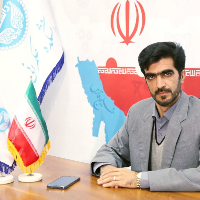Determining the Self-Development Dimensions of University Employees and Their Relationship to Learning Efficacy (Case: University of Tehran)
The purpose of the present study was to identify the dimensions of self-development of university employees and their relationship with the learning agility of Tehran University employees on the campus of the social and behavioral sciences. It is an exploratory mixed method study. In the qualitative part, meta-composition was used, and with the aid of Sandelowski and Barroso’s (2007) model, 60 related scientific research documents were analyzed from among 410 titles, and more than 410 open codes were identified. In 2021–2022 there were 197 members of the social and behavioral sciences campus research community at Tehran University. 127 individuals from seven faculties were selected by straightforward random sampling. In the qualitative part, the composite form was utilized, whereas in the quantitative part, the self-development and learning agility questionnaire created by the researcher was used. The findings reveal the existence of four dimensions, namely psychological, behavioral, affective, and moral self-development. Using Lisrel8.8 software, a self-developed measurement model was created with the aid of structural modeling, demonstrating the model’s excellent fit with the data. Learning agility has a correlation coefficient of 0.72 with self-development. Employee learning agility was significantly related to psychological self-development with a coefficient of 0.72, emotional self-development with a coefficient of 0.63, behavioral self-development with a coefficient of 0.67, and moral self-development with a coefficient of 0.59. In general, it is possible to assert that self-development consists of four essential dimensions, and that all of these dimensions have a positive and significant relationship with the learning agility of employees.
-
Providing a digital governance model of education: A meta synthesis study
*
Journal of Educational Leadership Research, -
leaders’ neuro-cognitive self-development: An analysis of the perspectives of academic leaders and neuro-cognitive specialists (Qualitative study)
*, Reza Omidi Far
Researches of Management Organizational Resources,



